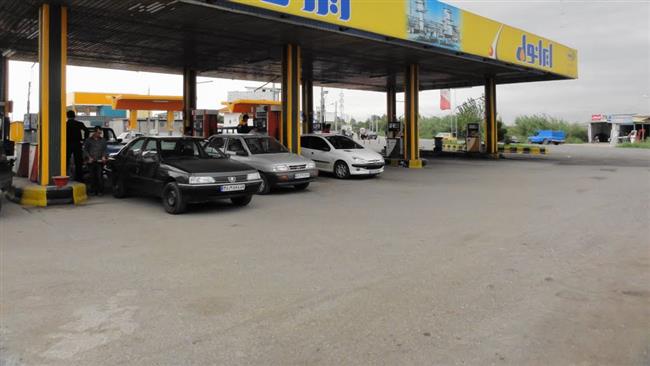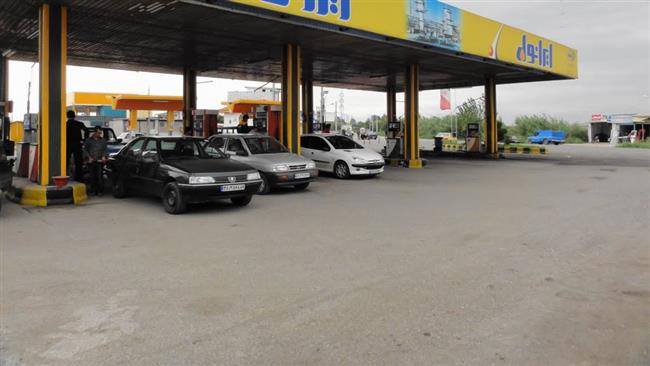 This file photo shows cars gassing up at a petrol station near Tehran.[/caption]
This file photo shows cars gassing up at a petrol station near Tehran.[/caption]The Iranian parliament (Majlis) has approved a five-percent increase in fuel prices for the next fiscal year starting March 21, amid falling oil prices.
The Iranian lawmakers voted in favor of fuel price hike during deliberations on the annual budget bill for next year on Monday, Arman daily newspaper reported on Tuesday.
According to the legislators� approval, the administration of President Hassan Rouhani is now authorized to raise semi-subsidized regular gasoline price from the current IRR 7,000 a liter to IRR 7,350 (26.6 cents).
Semi-subsidized supergas will sell IRR 8,400 a liter, up from the current IRR 8,000, while unsubsidized regular gasoline and supergas will respectively soar from IRR 10,000 and IRR 11,000 to IRR 10,500 and IRR 11,550 respectively.
The announced fuel price hikes come in contradiction with government officials� remarks in recent weeks that the government has no plan to raise the price of energy commodities in the next calendar year.
Analysts say the government has been forced by plunging oil prices to reconsider fuel prices.
The government last raised fuel prices last April as part of its plans to gradually scrap fuel subsidies.
Car fuel in Iran is among the cheapest in the world. The latest slashes in fuel and energy subsidies are meant to allocate government money for other sectors in production and infrastructure.
Iranians burn less than 70 million liters of gasoline a day, of which five million liters is imported.
The international prices of oil have plunged by some 60% since June 2014, when it was traded at a fairly stable $100 per barrel. Experts blame a saturated market as well as the weak global demand for sliding oil prices.
This has already taken a toll on the economies of producing countries. The drops in prices have also affected the oil industry, with project delays, layoffs and cancelled spending.
In its last meeting last November, the Organization of the Petroleum Exporting Countries (OPEC) refused to lower its output, mainly due to opposition from Saudi Arabia.
By Press TV











